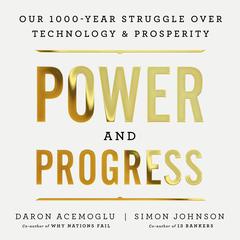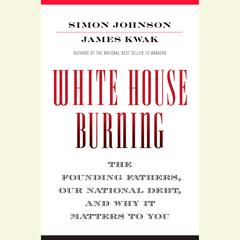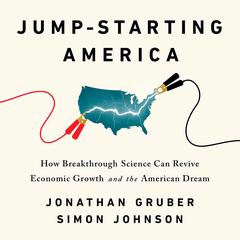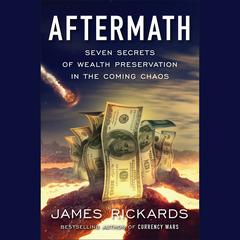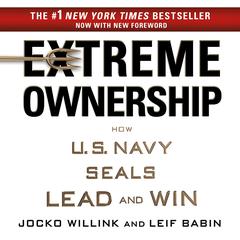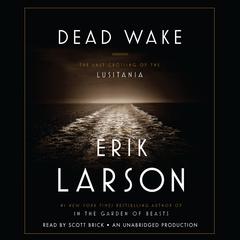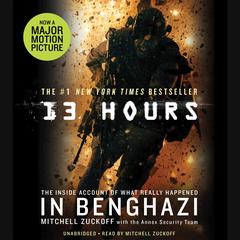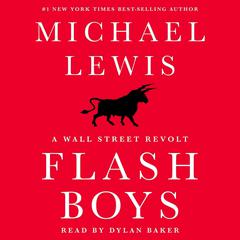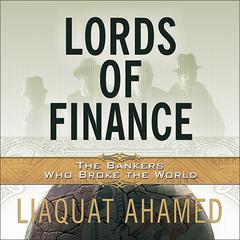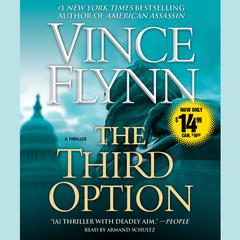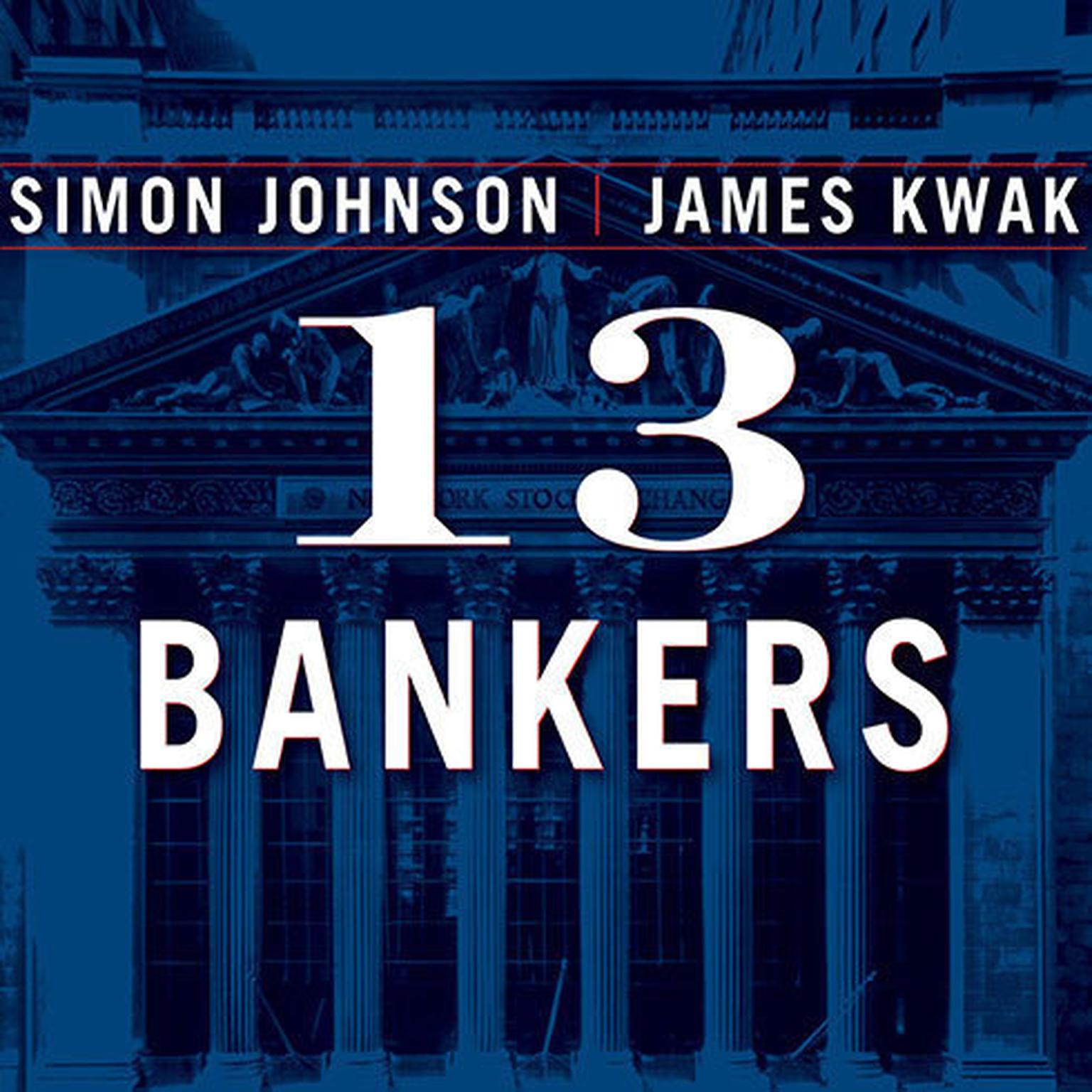 Play Audiobook Sample
Play Audiobook Sample
13 Bankers: The Wall Street Takeover and the Next Financial Meltdown Audiobook
 Play Audiobook Sample
Play Audiobook Sample
Quick Stats About this Audiobook
Total Audiobook Chapters:
Longest Chapter Length:
Shortest Chapter Length:
Average Chapter Length:
Audiobooks by this Author:
Publisher Description
Even after the ruinous financial crisis of 2008, America is still beset by the depredations of an oligarchy that is now bigger, more profitable, and more resistant to regulation than ever. Anchored by six megabanks, which together control assets amounting to more than 60 percent of the country's gross domestic product, these financial institutions (now more emphatically "too big to fail") continue to hold the global economy hostage, threatening yet another financial meltdown with their excessive risk-taking and toxic "business as usual" practices. How did this come to be—and what is to be done? These are the central concerns of 13 Bankers, a brilliant, historically informed account of our troubled political economy.
In 13 Bankers, prominent economist Simon Johnson and James Kwak give a wide-ranging, meticulous, and bracing account of recent U.S. financial history within the context of previous showdowns between American democracy and Big Finance. They convincingly show why our future is imperiled by the ideology of finance (finance is good, unregulated finance is better, unfettered finance run amok is best) and by Wall Street's political control of government policy pertaining to it.
The choice that America faces is stark: whether Washington will accede to the vested interests of an unbridled financial sector that runs up profits in good years and dumps its losses on taxpayers in lean years, or reform through stringent regulation the banking system as first and foremost an engine of economic growth. To restore health and balance to our economy, Johnson and Kwak make a radical yet feasible and focused proposal: reconfigure the megabanks to be "small enough to fail."
Download and start listening now!
"Well written book by economists of the academic and professionally experienced type with an eye to the financial crisis of 2007-09+. If you want an explanation of the playing field and some detail of how powerful banks have become and tools of that trade -- if you haven't lost your house yet this won't be so painful, then this is a good start. Not a whole lot of fancy technical stuff but there is a need for the reader to be aware that the situation does have technical financial aspects -- Mortgage Backed Security, CDO, Interest Rate Swap, Special Investment Vehicle -- and these are explained fairly well. I'd give it another half star but rating doesn't exist."
— Bimus (4 out of 5 stars)
Quotes
-
“This intelligent, nuanced book…synthesizes a significant amount of research while advancing a coherent and compelling point of view.”
— Publishers Weekly -
Erik Synnestvedt reads with a strong and clear voice and an appropriate edge of indignation at the hubris of our nation's most powerful bankers.
— Publishers Weekly Audio Review
13 Bankers Listener Reviews
-
" Simon and James do an amazing job of walking you through the history of the housing industry, the intricacies of the finance industry with the MBO's and comparing the crash to crashes in other foreign markets. Similar to my review of flash boys, if you are multitasking, it is going to be tough to get the most out of the audiobook as you will most likely miss on some important points. "
— Will, 4/26/2016 -
" The audiobook voice talent made this a bit painful to get through. The content was dry enough as it was... the last several chapters were the meatiest. "
— Heather, 2/20/2014 -
" It felt a bit short, and there was a little too much history. "
— Alex, 2/7/2014 -
" One of the first non-fiction books out of the gate on the 2008 financial crisis and one of the best at the time. If you haven't read Johnson and Kwak's blog, The Baseline Scenario, you're missing out on the shorter form version of the more complete arguments they make about what went wrong. I would include this on any reading list about the financial crisis--although several other books have come out recently that are more comprehensive and address particular aspects even more effectively. "
— Cory, 2/5/2014 -
" While some of the book may seem technical, it's clear that no one cared that they were about to wreck the world's economy........and they knew. "
— Karl, 1/28/2014 -
" Great look at what happened on Wall Street during the meltdown, the revolving door between Wall St. and Washington, and how the Bush and Obama administration handled it. This isn't just a history of the collapse the authors offer ways to insure this doesn't happen again. As solid as their logic is it's not politically viable in our current climate. It took me longer to read this than I originally wanted because the more I read about the actions of the bankers and those in Washington the angrier I got and had to put the book down. "
— Robb, 1/27/2014 -
" A good read. And so infuriating that none of these bankers are in jail! "
— Gail, 1/19/2014 -
" Excellent resource book on the financial crisis. Johnson and Kwak provide in depth detail about derivatives and CDOs, purpose and failings. A look at what went wrong, what went right, and how we can move forward. "
— Kris, 1/12/2014 -
" A very good book...would've been great if it ended with a recipe for Molotov cocktails. "
— Andrew, 1/5/2014 -
" I learned that the most important thing is to break up the big banks, and in order to do that, we have to make the Congress and the executive branch as well as the VOTERS understand why no bank can be too big to fail. "
— Michele, 11/30/2013 -
" Great overview of the causes of the financial crisis and what little has been done to safeguard against future meltdowns. Really hits the button on the nose as far as the "too big to fail" concept is concerned. "
— Maribeth, 7/3/2013 -
" This book reminded me of a good college professor. It made the most mundane topic, banking and financial instruments, fascinating. A wonderful explanation of what the financial crisis was based upon and how we got there. "
— Jessica, 5/17/2013 -
" One of the best books on our financial history as a country that I have read. "
— Matt, 5/12/2013 -
" Great insight but may make you even more jaded about the intersection of Wall Street and Washington (regardless of parties). "
— J, 4/18/2013 -
" Excellent review of the credit/banking crisis. Strong argument in favor of breaking up the banks. Thorough, complete, many insights. Highly recommended. "
— Peter, 12/29/2012 -
" Great read. Begins with the history of the banking industry in the US and leads up to the 2008 financial crisis. Concludes with solutions for the Too Big to Fail banks. "
— CHi, 12/24/2012 -
" writing is densely packed with information, but the descriptions and explanations of arcane financial stuff are good "
— Jim, 3/30/2012 -
" excellent audio book. highly recommended. demonstrates inequality in us "
— Jose, 11/26/2011 -
" Couldn't get through. Redundant to other business books. Start with the Big Short. "
— Seth, 11/2/2011 -
" A good companion to Michael Lewis's <em>The Big Short</em>. More dry and less of a narrative than Lewis, perhaps better if you are already familiar with the banking system. "
— Lindsey, 5/5/2011 -
" One of the best books on our financial history as a country that I have read. "
— Matt, 4/17/2011
About the Authors
Simon Johnson is the Ronald A. Kurtz Professor of Entrepreneurship at MIT’s Sloan School of Management and a senior fellow of the Peterson Institute for International Economics. A former chief economist of the International Monetary Fund, he is coauthor, with James Kwak, of “The Baseline Scenario,” a leading economic blog.
James Kwak is a professor at the University of Connecticut School of Law and the co-author, with Simon Johnson, of 13 Bankers and White House Burning. He has a PhD in intellectual history from the University of California at Berkeley and a JD degree from the Yale Law School. Before going to law school, he worked in the business world as a management consultant and a software entrepreneur.
About Erik Synnestvedt
Erik Synnestvedt has recorded nearly two hundred audiobooks for trade publishers as well as for the Library of Congress Talking Books for the Blind program. They include The Day We Found the Universe by Marcia Bartusiak, A Game as Old as Empire edited by Steven Hiatt, and Twitter Power by Joel Comm.




